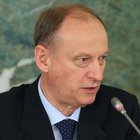Secretary of the Security Council Nikolai Patrushev: The Security Council of the Russian Federation discussed new challenges and threats to national security amid an escalating global migration crisis caused by major geopolitical and economic changes around the world.
According to UN estimates, there are over 280 million migrants globally. This figure increases significantly every year. Twenty years ago there were 100 million fewer.
The destructive actions of the United States and its allies, which incite military and inter-ethnic clashes, and their crude interference in the internal affairs of independent states have resulted in waves of millions of refugees from Iraq, Afghanistan, Libya, Syria, Ukraine and other countries.
See also
Due to the growing terrorist threat in Africa and the Middle East alone, 28 million refugees arrived in Europe and Asia in 2021.
The restrictive economic measures are also forcing people to relocate. The illegitimate unilateral sanctions imposed by the West have led to a significant decline in the standard of living in a number of countries and a reduced access to essential supplies, including food and medicine. Presumably, the energy crisis in Europe caused by Western sanctions will lead to another wave of displacement.
The migration challenges facing our country have evolved as well.
Amid the relaxation of quarantine restrictions brought on by the pandemic, the number of foreign nationals coming to Russia, mainly in search of work, increased by a third this year.
About 5 million residents of Donbass and southeast Ukraine found refuge in Russia as they fled the neo-Nazi Kiev regime’s genocide.
With this in mind, the priorities of government institutions and agencies in the migration sphere must be revised.
Members of the Security Council have decided to amend, by the end of 2022, Russia’s current State Migration Policy Concept for 2019–2025, as well as to draft a specific action plan to implement the amended concept.
Support for people arriving from the settlements in the DPR, LPR, Zaporozhye and Kherson regions affected by the actions of Ukrainian neo-Nazis will continue to receive particular attention. As safe conditions are created in those regions, the Government will provide all-out assistance in their return to their places of permanent residence.
Additional security measures have been developed to protect our fellow nationals abroad who find themselves in challenging situations due to the rampant Russophobia of unfriendly countries.
Law enforcement agencies and security services have been instructed to detect members of international terrorist and extremist organisations who use migration channels to stage terrorist attacks and commit other crimes.
Significant efforts are planned to maintain law and order in areas densely populated by migrants. Legislative changes are envisaged that will tighten migration control and increase the penalty for foreign nationals violating the rules of stay in our country.
Considerable attention is to be paid to the social and cultural adaptation of foreign citizens, and their children’s enrolment in Russian general education programmes.
Other instructions were also given to the Government of Russia, to interested ministries and agencies, presidential plenipotentiary envoys to the federal districts, and heads of Russian regions.
